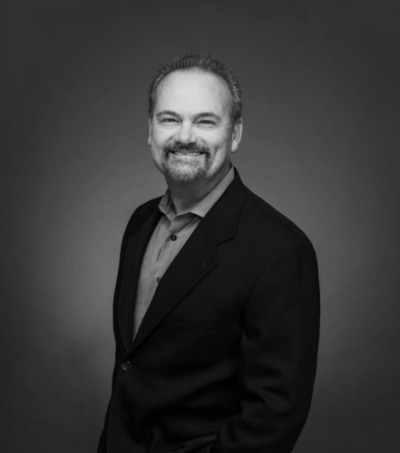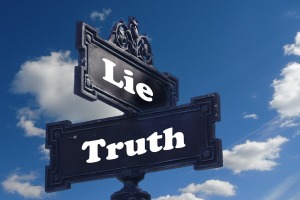Love doesn’t cast out all fear
We have come to know and have believed the love which God has for us…By this, love is perfected with us, so that we may have confidence in the day of judgment; There is no fear in love; but perfect love casts out fear, because fear involves punishment, and the one who fears is not perfected in love. (1 John 4:16-18)

My doctor stood in my office doorway, a look of serious concern on his face. “I need to talk to you for a minute,” he said. I had just finished with a patient and was writing my clinical notes. We work in the same building.
He entered and shut the door behind him. “Your lab work came back. We think you might have bone cancer. I need you to have a CT scan and x-rays done – today.”
The remainder of that day was a blur. A CT scan and 45 minutes of x-rays. It was the day before Thanksgiving, so I had to wait until the following week for results. That long Thanksgiving weekend felt like an eternity.
My diagnosis: smoldering multiple myeloma. An immune disorder. It was good news and bad news. The good news: it wasn’t active cancer. The bad news: I have to do lab work every three months for the rest of my life, because of the disorder’s quick potential to worsen.
It’s been three years since I was given that diagnosis. I am still adjusting to the anxiety it has brought to my life. Every three months, I wait for the call: “You’re OK for another three months. We will see you then.”
So how does that fear and anxiety work in the context of the apostle John’s statement, perfect love casts out fear?
In psychology, there is a difference between clinical anxiety and fear. Fear is a healthy function of survival. Anxiety is a paralyzing state of mind that interferes with daily responsibilities and joy of life.
I once treated a patient who was crippled with anxiety, fearful of leaving his house. He walked to work every day, and on one occasion was hit by a driver who ran a red light. Fortunately, he was not seriously injured, but the trauma resulted in panic attacks and nightmares. He couldn’t bring himself to cross a busy street.
So how does fear and anxiety work in the Christian life?
The apostle John promised the elimination of fear if we believe and understand the love of God. But does he mean all fear? If I experience fear in any circumstance, do I lack faith in God? Is it a sin to be afraid of death? Is it wrong to feel fear of God because of my sins?
When Moses spoke to the people of Israel, he addressed the role of fear in their relationship with God:
Moses said to the people, “Do not be afraid; for God has come in order to test you, and in order that the fear of Him may remain with you, so that you may not sin.” (Exodus 20:20)
‘Fear’ in this text is similar to my patient who was hit by the car. Moses didn’t want Israel to be afraid of God, crippled with anxiety, or incapable of enjoying God’s love and walking with confidence in his blessings. But he did want Israel to maintain the God-given “fear of survival” – the ability to be afraid of what is dangerous, Satan, sin, and sin’s consequences.
So what was John’s “perfect love” that casts out fear?
There are two key words in John’s text: ‘judgment’ and ‘punishment.’ God’s love casts out fear about the consequences of death and judgement. He will take care of the outcome. He provides the victory. But that doesn’t mean the process isn’t frightening.
Jesus was distressed by God’s process for judgement. In the garden of Gethsemane, on the night before his crucifixion, Jesus pleaded with God, “Father, if it is thy will, take this cup [of bearing the world’s sins on the cross] from me.” He was literally sweating blood. Yet by prefacing his request with “if it is thy will,” Jesus showed his confidence in God’s plan.
In John’s verse, Christians can be unafraid because God will save our souls, even though the process of death may be filled with fear and suffering.
Imagine a mother taking her daughter to her first day of school. The little girl may be terrified as she approaches the playground: big kids playing, lots of noise, many unknowns. The mother holds her hand, reassuring her that it’s going to be okay. Nothing bad will happen. The child is still afraid, but she’s confident that Mom can handle any threat. The child might not know how mom would handle it, but her confidence is more powerful than her fear.
When “perfect love casts out fear,” we are not afraid of God’s ability to handle our personal day of judgment, or the world’s day of judgment – even though the world’s playground is filled with suffering and fear. We are confident that God, having demonstrated his power in the resurrection of Christ, will defeat Satan and bring us home. As Moses told Israel, “Don’t be afraid of God – but don’t lose your fear of the playground!”
One last thought about fear. In the Bible, whenever God, Jesus or angels appear to humans, they always say, “Do not be afraid.” They are not condemning fear; they are acknowledging our fear and consoling us. Like the mother to the child on the playground, they are telling us, “Don’t be afraid. I will protect you.” A perfect love that casts out fear.
Dr. David Zuccolotto is a former pastor and clinical psychologist. For 35 years he has worked for hospitals, addiction treatment centers, outpatient clinics and private practice. He is the author of The Love of God: A 70 Day Journey of Forgiveness.




























